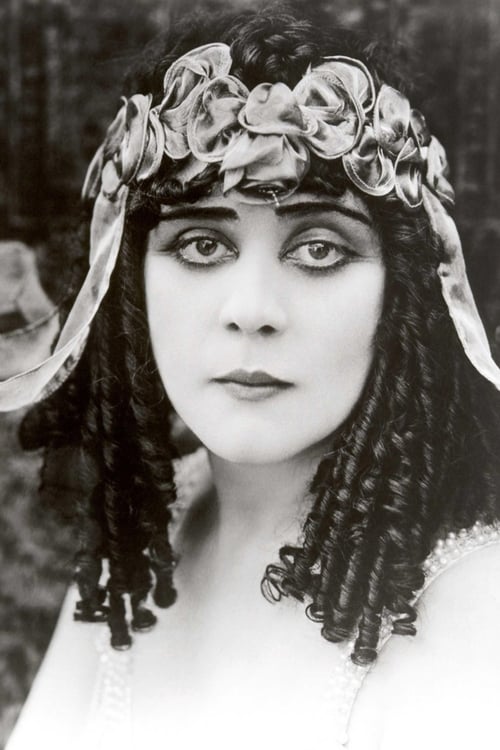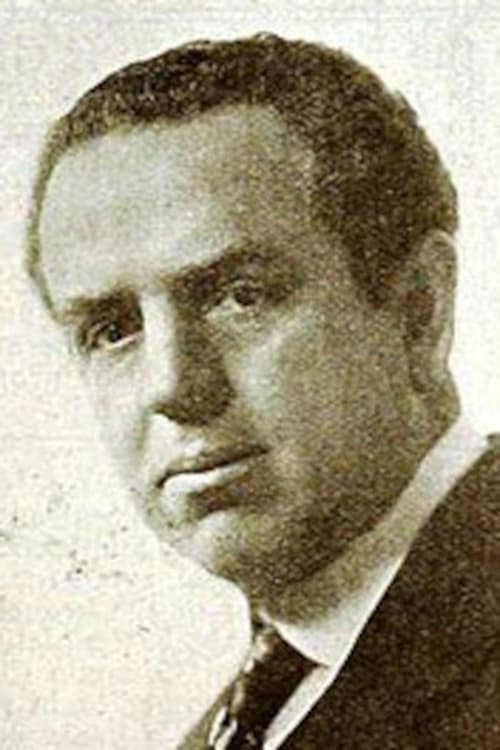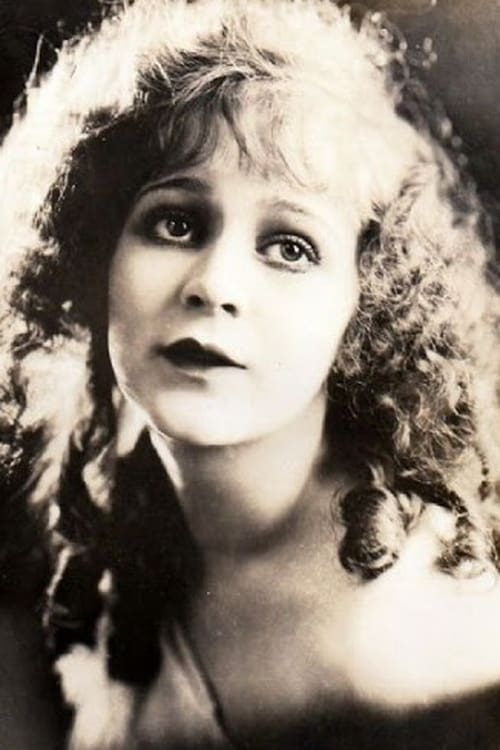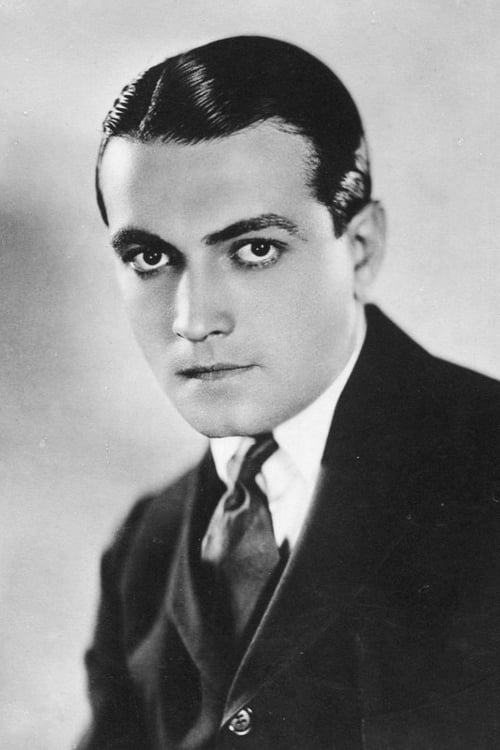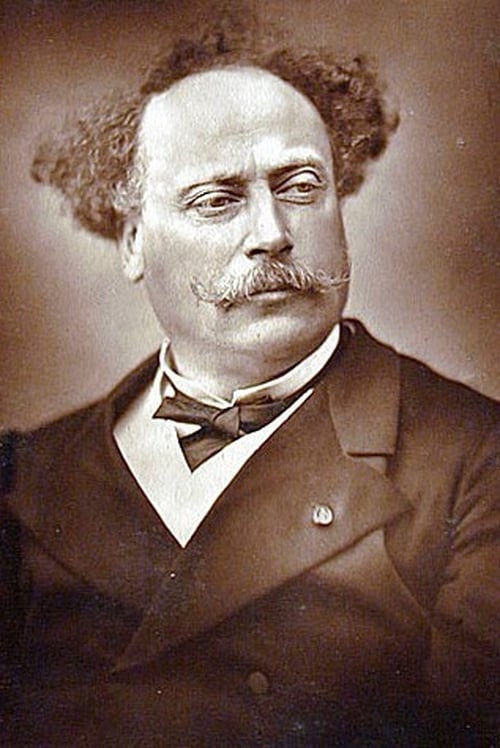Camille (1917)
A Masterpiece of Bara Art -- A Theda Bara Super Picture
Genre : Drama, Romance
Runtime : 1H 0M
Director : J. Gordon Edwards
Synopsis
Camille is a courtesan in Paris. She falls deeply in love with a young man of promise, Armand Duval. When Armand's father begs her not to ruin his hopes of a career and position by marrying Armand, she acquiesces and leaves her lover. However, when poverty and terminal illness overwhelm her, Camille discovers that Armand has not lost his love for her.
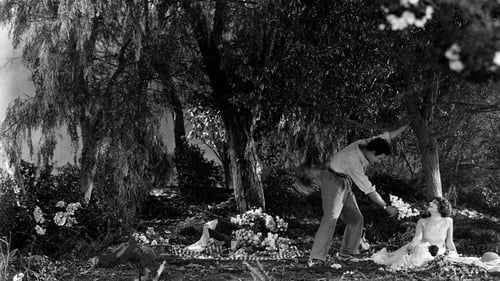
Based on the 1852 novel and play La Dame aux Camélias by Alexandre Dumas, fils.

Violetta, a courtesan much wooed by Parisian society, organizes a grand party that is attended, amongst others, by the young Alfredo Germont. He confesses his feelings to Violetta, who is already suffering from consumption. She vacillates between genuine affection and a realistic assessment of her situation as a "fallen woman", which precludes any lasting relationship with a man. The Willy Decker production of La Traviata, recorded live at the Salzburger Festspiele in August, 2005. Anna Netrebko stars as Violetta Valéry, with Rolando Villazón as Alfredo Germont and Thomas Hampson as Giorgio Germont. Carlo Rizzi conducts the Wiener Philharmoniker.
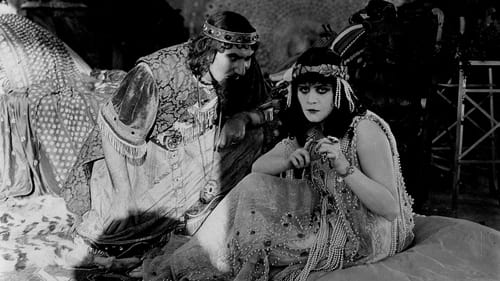
Palestine, under the rule of Rome. Salome, daughter of Herodias and both niece and stepdaughter of King Herod, becomes infatuated with the prophet John the Baptist, who publicly denounces the depravity of the royal family and proclaims the arrival of a new messiah. (Film presumed lost.)

Drama looking at artist William Hogarth and his relationship with the prostitute that inspired his most famous piece.
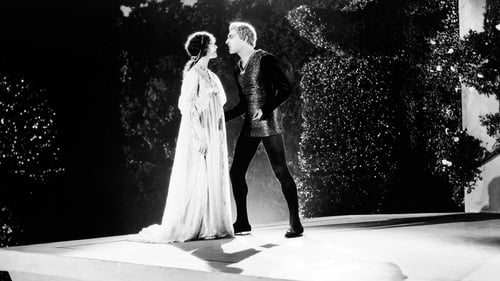
A nobleman studying for the priesthood abandons his vocation in 18th Century France when he falls in love with a beautiful, but reluctant, courtesan.

In the Kentucky hills a store keeper tries to win the love of an innocent schoolteacher. She runs away and seeks refuge with a hermit.

Adventures of an elderly man surrounded by pretty young swimming girls at one of the Belgrade beaches.

The beginning of the 20th century. Charles Swann, a young and wealthy dandy, spends most of his time hanging out with the old nobility, notably the Duke and Duchess of Guermantes. He is madly in love with a pretty demi-mondaine, Odette de Crécy. Idle, Swann surrendered complacently to the torments of jealousy. After hours of suffering, he manages to spend a night with Odette. In the morning, he believes that ultimately, this one is "not his type". However, we find him, many years later, alongside Odette who, now his wife, gave him a daughter. In the company of Baron de Charlus, brother of the Duchess of Guermantes, he wonders about the failure of his sentimental life, so far removed from this absolute he dreamed of...
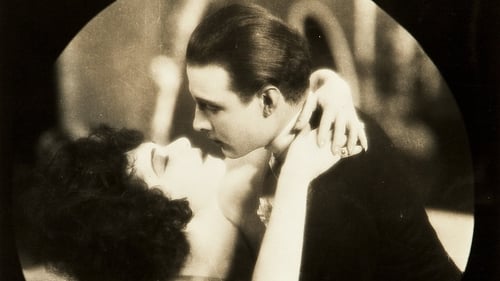
Camille is a courtesan in Paris. She falls deeply in love with a young man of promise, Armand Duval. When Armand's father begs her not to ruin his hope of a career and position by marrying Armand, she acquiesces and leaves her lover. However, when poverty and terminal illness overwhelm her, Camille discovers that Armand has not lost his love for her.

This film is presumed lost.

A young man uses tips from an absurd book to woo a woman he fancies.

Directed by Pyotr Chardynin.

Marty Reid, the star quarterback at Sanford College, is constantly singled out by the opposition for punishment, and he swears to his pal, Honey Smith, and to Coach Wilson that he will quit the game forever. Ed Kirby, who dislikes Reid, calls him yellow, and Wilson gets Patricia Carlyle, the college vamp, to induce Reid to play. At a sorority dance, where only football players can cut in, Kirby persecutes Reid by dancing with Pat, and as a result Reid does apply to play in the game.

St. Francis (also known as Nightmare and Dreams and Saint Francis: Dreams and Nightmares) is a French 25 minute anti-war film directed by Berthold Bartosch. Partially financed by Thorold Dickinson, Bartosch worked on it from 1933 to 1938. Very little is known about it, to the point where there are conflicting reports on whether it was in color or in black and white. When the Nazis invaded Paris, the film was still in the editing stages. Bartosch deposited the film at the Cinémathèque Française, where it was destroyed during the Nazi occupation. Reportedly, a few still images have survived, but they are incredibly rare and aren't available online.

A young soldier returns from the war to find his western homeland despoiled by conflict between the wheat farmers and a crooked lawyer.

A period fantasy that told of the ageing king of Kamarpur, and his two rival queens, Navbahar and Dilbahar, and their rivalry when a fakir predicts that Navbahar will bear the king's heir. Dilbahar unsuccessfully tries to seduce the army chief Adil (Vithal) and vengefully destroys his family, leaving his daughter Alam Ara (Zubeida) to be raised by nomads. Eventually, Alam Ara's nomad friends invade the palace, expose Dilbahar's schemes, release Adil from the dungeon and she marries the prince of the realm.

Probably the first Indian film directed by a woman. It was a big-budget fantasy abounding with special effects set in a Parastan or fairyland.

